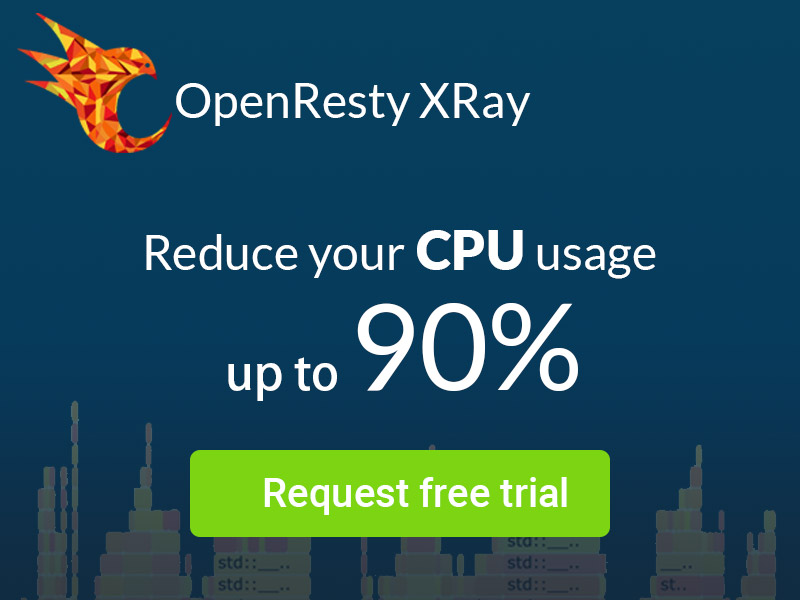From Days to Hours: How OpenResty XRay Accelerated the Linux shred Tool by Dozens of Times
In enterprise data security, secure file deletion is a common and important requirement. The GNU standard tool shred provided by Linux systems is designed for this purpose, ensuring data cannot be recovered by overwriting file contents multiple times. However, in practical applications, we found that the shred tool performs poorly when processing large files, seriously affecting work efficiency. This article shares how the OpenResty team used OpenResty XRay to optimize shred, reducing tasks that originally took days to just hours.
Problem Analysis
GNU shred is a standard secure deletion tool in Linux systems. It works by overwriting files multiple times with random data to ensure file contents are thoroughly erased, preventing data recovery. However, when handling large storage devices or files, shred’s execution speed is extremely slow, becoming a significant bottleneck in environments requiring frequent secure data erasure.
During a large-scale data security processing task, we estimated that using the original shred tool would require running continuously for several days to complete. This not only occupied system resources but also delayed subsequent workflows, prompting us to seek a more efficient solution.
OpenResty XRay Practical Results
OpenResty XRay is our toolkit designed specifically for performance analysis and optimization. It can deeply analyze performance bottlenecks during program execution and provide precise optimization directions. Faced with shred’s performance issues, we decided to use XRay for in-depth analysis.
XRay’s advantage lies in its ability to provide fine-grained performance data, including key metrics such as CPU usage, memory allocation, and I/O operation efficiency, without modifying the source code of the analyzed program. This allowed us to quickly locate performance bottlenecks in the shred tool.
Optimization Process
Through XRay’s analysis, we discovered several key performance bottlenecks in shred’s file overwriting process. Based on these findings, we made targeted modifications to shred’s source code.
Surprisingly, by changing just a few lines of C code, we successfully resolved these performance issues.
The optimized shred tool achieved performance improvements dozens of times under the same hardware environment and operating parameters. Most satisfyingly, these optimizations fully preserved the original tool’s functionality and security, ensuring data was equally thoroughly erased, just at a much faster speed.
In practical application testing, data erasure tasks originally estimated to take several days could now be completed in just an hour or two. This efficiency improvement not only saved system resources but also significantly shortened project cycles.
Application Value
The practical value of this optimization far exceeds mere time savings. In enterprise environments, more efficient data security tools mean:
- Reduced server downtime and improved resource utilization
- Accelerated data center equipment retirement and update processes
- Reduced time costs for security compliance operations
- Improved IT team efficiency and reduced operational pressure
Especially for organizations that need to regularly perform large-scale data security processing, this performance improvement can translate into significant cost savings and efficiency gains.
Summary and Outlook
Using the OpenResty XRay tool, we successfully improved the performance of the standard Linux tool shred by dozens of times, demonstrating XRay’s powerful capabilities in performance analysis and optimization. This case also proves that even mature tools developed over many years still have significant room for optimization.
In addition to XRay, OpenResty also provides comprehensive private library services covering technical needs across various industries. These private libraries have significant advantages in performance optimization, security protection, and data processing, helping enterprises quickly build high-performance, high-reliability application systems. Whether in finance, e-commerce, media, or tourism industries, OpenResty’s private libraries can provide tailored solutions to meet specific needs in different scenarios.
The OpenResty team will continue to develop and improve the XRay toolkit and private library services, helping developers and enterprises discover and solve various performance bottlenecks. We believe that through precise performance analysis and targeted optimization, many seemingly unimprovable performance issues can achieve breakthrough solutions.
If your team also faces similar performance challenges, consider trying OpenResty XRay and private library services, which may bring unexpected efficiency improvements and technical breakthroughs.
What is OpenResty XRay
OpenResty XRay is a dynamic-tracing product that automatically analyzes your running applications to troubleshoot performance problems, behavioral issues, and security vulnerabilities with actionable suggestions. Under the hood, OpenResty XRay is powered by our Y language targeting various runtimes like Stap+, eBPF+, GDB, and ODB, depending on the contexts.
If you like this tutorial, please subscribe to this blog site and/or our YouTube channel. Thank you!
About The Author
Yichun Zhang (Github handle: agentzh), is the original creator of the OpenResty® open-source project and the CEO of OpenResty Inc..
Yichun is one of the earliest advocates and leaders of “open-source technology”. He worked at many internationally renowned tech companies, such as Cloudflare, Yahoo!. He is a pioneer of “edge computing”, “dynamic tracing” and “machine coding”, with over 22 years of programming and 16 years of open source experience. Yichun is well-known in the open-source space as the project leader of OpenResty®, adopted by more than 40 million global website domains.
OpenResty Inc., the enterprise software start-up founded by Yichun in 2017, has customers from some of the biggest companies in the world. Its flagship product, OpenResty XRay, is a non-invasive profiling and troubleshooting tool that significantly enhances and utilizes dynamic tracing technology. And its OpenResty Edge product is a powerful distributed traffic management and private CDN software product.
As an avid open-source contributor, Yichun has contributed more than a million lines of code to numerous open-source projects, including Linux kernel, Nginx, LuaJIT, GDB, SystemTap, LLVM, Perl, etc. He has also authored more than 60 open-source software libraries.


















